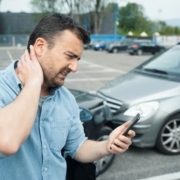What to Do When the Adjuster Won’t Return Your Calls After an Accident?
Having been involved in a car accident, one of the things you need to do is to file a claim with the insurance company of the negligent driver. Under the Alabama personal injury laws, the individual or entity responsible for the accident is held liable to pay for any injuries and damages resulting from it.
If you are the victim and you initiate a claim with the insurer for the at-fault party, an insurance adjuster is usually assigned to your case. The adjuster is the contact that you would rely on to move the claims process forward. But problems arise with this process when the insurance adjuster stops taking or returning your calls.
The Insurance Adjuster Not Returning Calls Is a Common Issue
Insurance company adjusters going silent is a common complaint. And injured accident victims already going through a stressful time do not need the additional hassle of dealing with an unresponsive adjuster.
All they are looking for is to be updated about their claim, and the assurance that their claim being handled in a professional and fair manner. However, the situation rarely pans out that way. Insurance company adjusters, besides being up to their necks with claims, are a part of a system that is inherently designed to cut the insurer’s losses by slowing down the entire process and reducing the number of claims that are paid out.
Reasons Why Your Adjuster Might Not Return Your Calls
Insurance Company Profit is the Prime Mover
Insurance companies are businesses that are out there to generate profits for their stakeholders. And while there might be nothing wrong with that in general, the problem here is that the interests of the insurer are not aligned with those of the injury claimant. This makes the adjuster an adversary who is definitely not looking out for what is best for the injured party.
While slowing down and/or rejecting claims creates more profit for the insurance company, it also incentivizes adjusters to deny or devalue your claim because the lesser the payout, the more the company gets to keep.
Your Desperation Helps Drive Down the Claim Value
The most common way an adjuster does this is by stretching out the claims process. They deal with injured victims of accidents day in and day out. And they are fully aware of the desperate situation most claimants are in – with your medical bills piling up, car damages to be paid, and financial constraints due to loss of earnings – while you are trying to recover from your injuries.
The adjuster is fully aware that the longer they drag out your case, the more pressure will build on you. And the more desperate you become, the more likely you are to accept any settlement offer that finally comes your way. Even if it might be much lower than you deserve for your injuries, damages, lost earnings, and pain and suffering.
The Insurance Company Is Not Liable Until Forced
Another reason that the adjuster is not calling you or returning your calls is simply because they do not have to. They usually get away with their delaying tactics because they are not legally bound by a fixed timeline, and they are not technically breaking any law by delaying or even rejecting your claim.
The onus is on you to either accept their settlement offer, however meager or unfair it might be, or take them to trial where a jury could force them to pay you the full and fair compensation you deserve for your injuries.
This is why it is vital that you consult with a reputable personal injury attorney who can skillfully negotiate a fair settlement on your behalf or take the insurance company to trial if the need arises.
What Should I Do When the Insurance Company Adjuster Does Not Call Back?
If you sustained injuries and damages in a car crash because of someone else’s fault, you will have many pressing issues that need to be handled promptly; such as medical bills, lost wages, vehicle repair, and arranging alternative transportation. While waiting for the adjuster to return your calls, you could utilize the following options:
If You Have Full Coverage Insurance for Your Vehicle
If you decide to cover the damage using your own insurance, the deductible that you are likely to have will be refunded by the at-fault driver’s insurance company. Also, your insurance company might waive the deductible on your request, which is a fairly common practice. Since you are using your own insurance carrier to cover the property damages, you can expect a better service without having to wait for the other insurance company to call you back.
If You Do Not Have Full Coverage Insurance for Your Vehicle
In this scenario, you will have no choice but to work with the other insurance company to take care of your property damage and alternative transportation. The choices you are left with are either to call frequently in an effort to force the adjuster to give you priority or request intervention by a supervisor to help force your claim through.
Contact a Skilled and Knowledgeable Personal Injury Attorney in Dothan, AL
For the victim of an accident, the best outcome is that the at-fault party’s insurance company offers a fair settlement. But unfortunately, this does not usually happen unless the insurer knows that you are serious about taking them to trial if they refuse to negotiate in good faith. At M. Adam Jones & Associates, we routinely deal with insurance adjusters as part of our job, and we have a successful track record obtaining maximum compensation on behalf of our clients. Contact us today for a free consultation and case assessment with a member of our legal team.
Adam Jones,
Managing Partner
Adam Jones & Associates, LLC
206 N. Lena St.
Dothan, AL 36303
Tel: 334-699-5599
Fax: 334-699-5588









